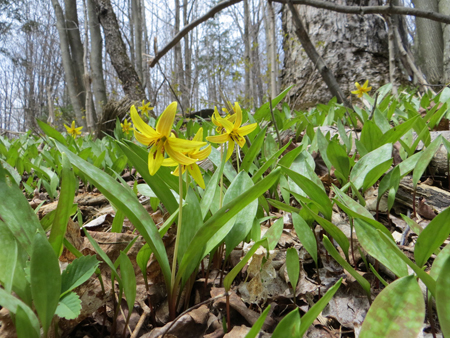Forests are critical habitat for diverse communities of native bees

Forests support native bees with short life cycles adapted to exploit spring ephemeral flowers, such as yellow trout lily (Erythronium americanum). Photo courtesy of Tina Harrison.
Tina Harrison, Rachael Winfree and collaborator Jason Gibbs (University of Manitoba) have published a paper showing that forest bee communities are most abundant and diverse in early spring, while agricultural and urban bee communities are most abundant and diverse in late summer. Forest bee communities also differ in terms of species, evolutionary lineages, and life history traits. The authors conclude that forest habitat is likely critical for supporting regional bee diversity in temperate ecosystems. Tina Harrison is a former PhD student and current postdoc in the Winfree lab. She will be starting a new postdoc February 2018 with pollination ecologist Neal Williams at UC Davis.
The article in Global Change Biology can be found here.
November 2017


